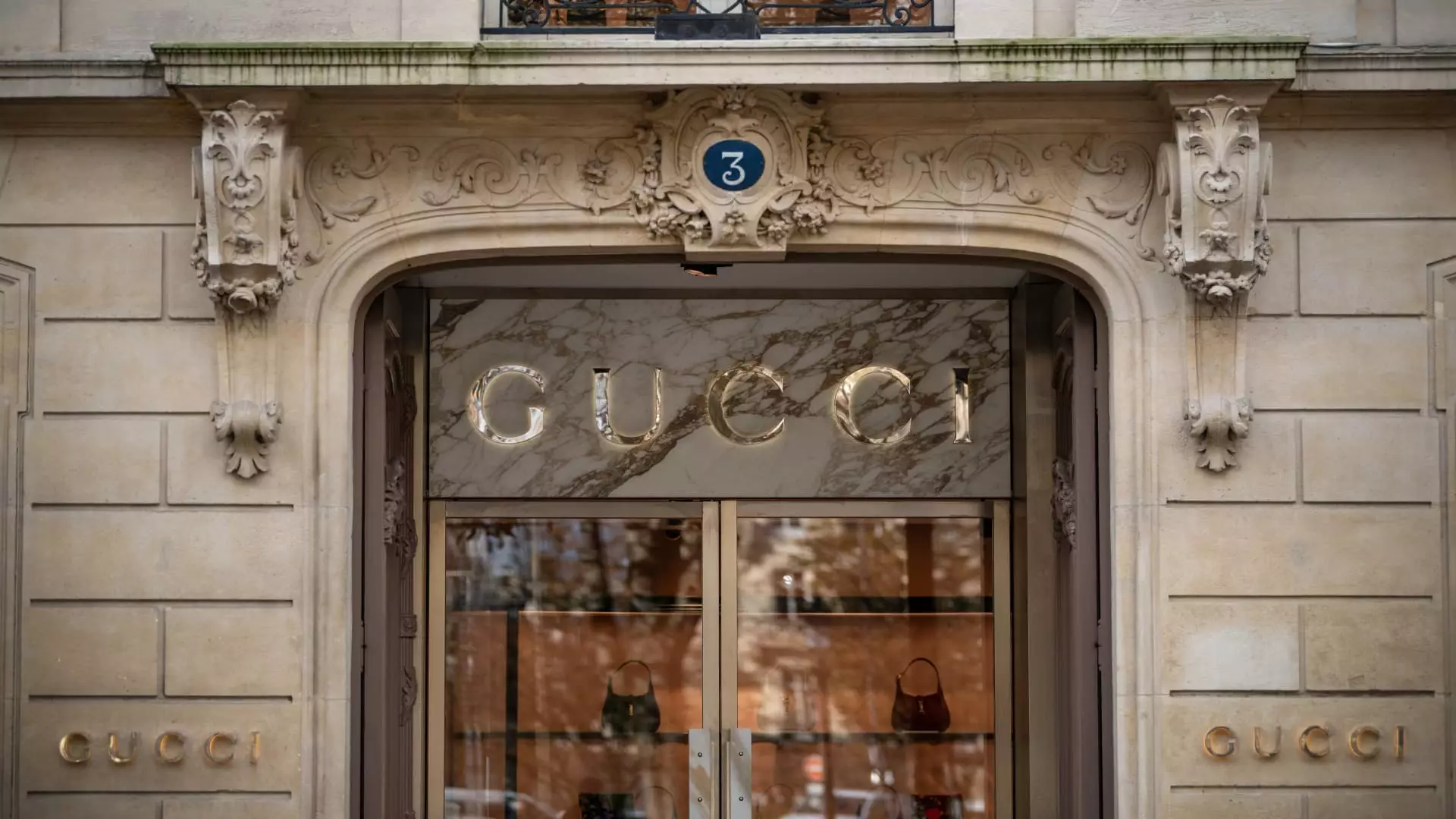In a shocking revelation this week, Kering—one of the titans of the French luxury goods sector—witnessed a staggering 14% decrease in first-quarter sales, plummeting to an alarming 3.9 billion euros ($4.4 billion). This decline fell short of analysts’ expectations, sending waves of discontent through the luxury stock market. What once glittered with opulence now hangs like a fragile ornament, tethered by the straining ropes of a turbulent macroeconomic landscape. When luxury giants like Gucci, accounting for nearly half of Kering’s revenue, reported a 25% comparable sales drop, it was not merely a red flag; it was an emergency signal screaming for attention.
A Brand in Turmoil
Kering’s flagship label, Gucci, finds itself in a downward spiral, desperately grappling with an identity crisis while attempting to recapture the allure it has lost over the years. The recent appointment of Demna Gvasalia as Gucci’s artistic director was meant to herald a new creative chapter, yet it seems to have only aggravated investor concerns. Gvasalia’s earlier controversies, stemming from a particularly misguided ad campaign with Balenciaga, cast a pall over this new venture. The backlash appears too consuming, showcasing that even in the luxury stratosphere, public perception and branding strategies wield undeniable power.
The bleak reality is that Gucci isn’t just reeling from a public relations misstep; it’s also suffering from waning consumer interest—a fate further exacerbated by heavy reliance on the Chinese market. As high inflation rates and economic instability dampen spending among even the wealthiest consumers, luxury brands that once stood impervious are now finding their glass castles cracking.
Global Economic Doldrums
It’s essential to examine the broader economic currents that are contributing to Kering’s woes. The luxury market, once thought to be insulated from economic fluctuations, is now seemingly vulnerable to a perfect storm of factors—especially significant declines in sales across Asia (down 25%), North America, and Europe (both down 13%). These staggering figures paint a dire picture of a global economy grappling with uncertainty, and luxury goods—a sector that thrives on consumer confidence—are feeling the heat.
Kering’s Chairman and CEO, François-Henri Pinault, admitted to facing a “difficult start to the year” and voiced concern regarding forthcoming challenges. Yet, the issue seems more profound than just an unfortunate fiscal quarter. Delayed recovery in luxury demand isn’t just a seasonally expected downturn; it represents a shifting paradigm where luxury is no longer a given, but a privilege subject to the whims of market dynamics.
Investor Distrust and Market Sentiment
What Kering needs, more than anything, is not merely a turnaround strategy but a fundamental restructuring of how they engage with their customers and brand identity. Investors are not just wary; they are disillusioned. Share prices are slipping, with a 4.3% drop recorded shortly after the disappointing sales announcement. The sentiment extends beyond Kering alone—industry stalwarts like LVMH, Richemont, and Hermes have all seen their stocks decline in sympathy.
Additionally, the looming possibility of tariff-induced economic downturns casts a long shadow over luxury brands. Analysts, while cautiously optimistic about a potential recovery earlier this year, now highlight the impending doom suggested by weakened global stock markets. The complexity of the current economic climate demonstrates how intertwined the luxury market is with broader economic health and confidence levels.
Navigating the Economic Storm
Kering, in its efforts to stabilize, faces the uphill task of revamping not just the product lines but also its brand’s storytelling. Recovery doesn’t rest solely on artistic directors or new designs; it burrows into understanding shifting consumer mindsets and adapting to the reality of economic constraints. If luxury brands were previously perceived as largely immune to price sensitivity, Kering’s challenges exemplify the fragility of that belief.
As the market grapples with uncertainties, Kering must prioritize innovation and transparency to regain the trust of consumers and investors alike. It’s crucial that the company updates its internal structures and reassesses its market strategies; a failure to adapt might well lead to a deeper entrenchment in these economic woes, risking not only Kering’s legacy but also its very survival in a fiercely competitive luxury marketplace.

